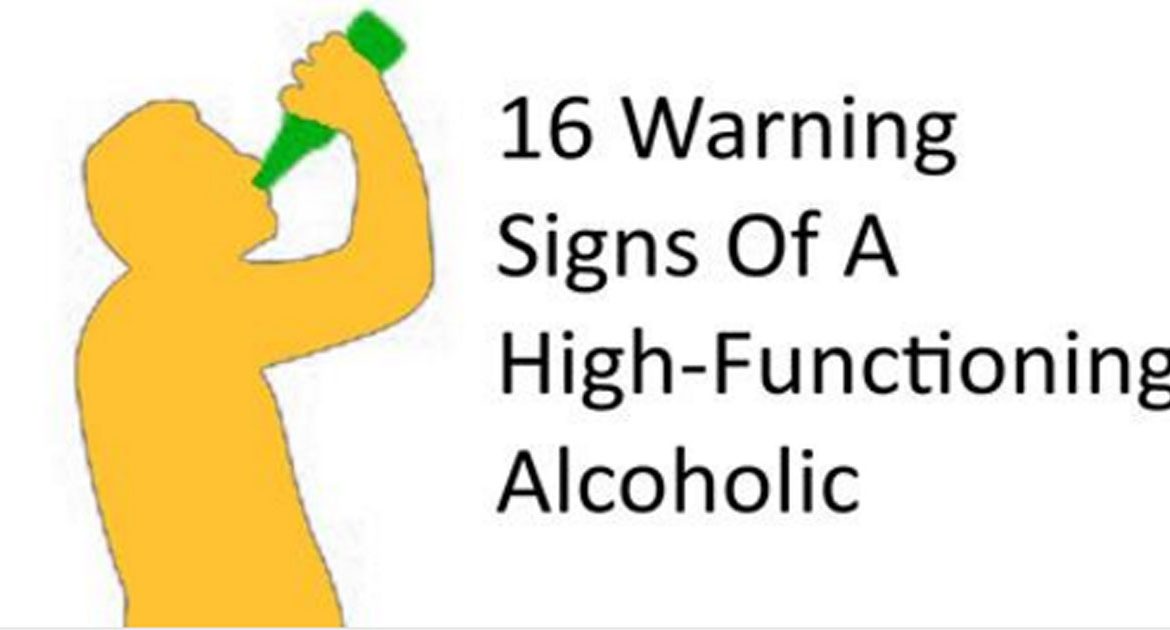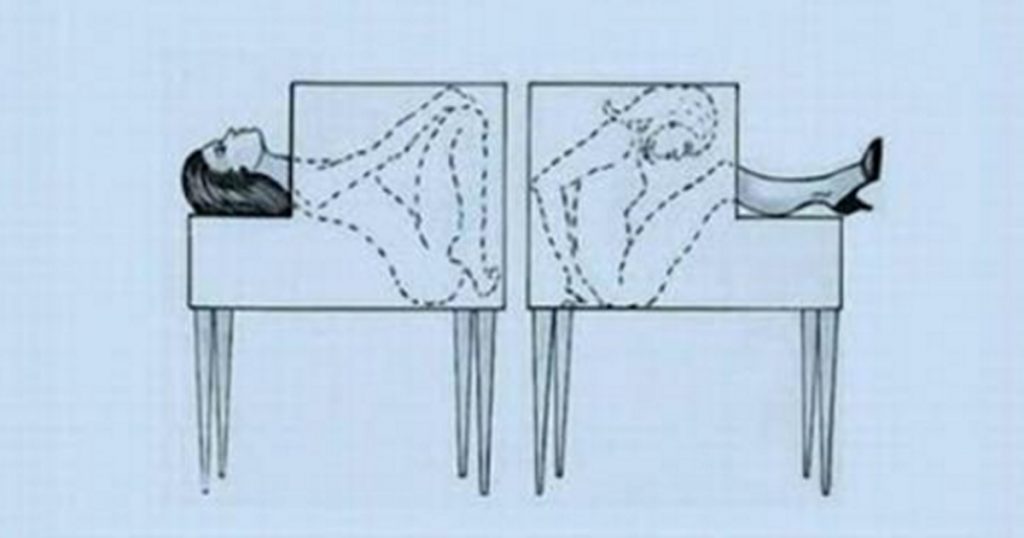When we are honest with ourselves, we all have our own vices. The things that we do that we know isn’t good for ourselves, but they help us through the tough times. Sometimes it’s smoking, stress eating or perhaps drinking a few cold ones when you get home.
Unfortunately, when we abuse these vices they can quickly become an addiction that can overwhelm a person. Sure there are countless programs and therapy methods to help someone beat their addiction, but it all requires that a person admit that they’re an addict and seek out the help.
For someone who is still in the middle of their addiction this can be an impossible task. Thankfully, family members and friends can help make those first, scary steps all that much easier for an addict.
Especially when it comes to something like drinking where it’s very common for someone to be expected to drink when they’re out at a party, or just watching the game with friends.
But what are the signs that someone may be struggling with an addiction? Can we know if we’re not with them 24/7? Fortunately, the answer is yes, and we’ve compiled 16 warning signs that someone you know may actually be a high functioning alcoholic. Or in other words, they’re addicted to alcohol even though they still succeed in life.
1. Drinking For A Meal

When you go out with someone to dinner a lot and you notice they seem to always end up choosing a couple of beers over some food that may be a warning sign. The food we eat for dinner doesn’t just taste great, but it also provides us with crucial nutrients that alcohol can never provide. Sure, we can all skip meals from time to time but if someone you know is repeatedly skipping meals for a wine glass instead it may be time to speak up for their own health and well being.
2. No Hangovers, ever

While this may seem like a huge plus if you’ve ever had to deal with hangovers, it’s actually a much more alarming symptom. When you drink a lot of alcohol your body will become will adjust to it and thus it will be harder for you to experience hangovers. No one should be able to knock back a ton of drinks and still be able to walk straight and maintain a coherent situation. If they do, it’s a sign that their tolerance is far too high.
3. Easily Irritated

Much like a heroin addict, a person who depends a lot on alcohol will become more and more irritable if they know they won’t be able to get their ‘fix.’ Whether it’s because they’re on vacation, the liquor store closed early or if they ran out of money once the alcohol dries up so, too, will their patience. High functioning alcoholics plan their entire day around making sure they get their drinks in time. For any person who isn’t addicted to alcohol missing a fun night out will only be a bummer but for an alcoholic it’s far worse.
4. Excessive Drinking

Tying back into #2, if a person needs to drink a lot more than you to achieve the same level of ‘buzz’ as you, it’s likely due to their high alcohol tolerance. In the worst possible scenarios the person will treat every drink as if it will be their last. That they’re going to suddenly be able to walk away. It ends up turning into drinking many more bottles, likely never stopping until they finally pass out.
5. Memory Loss

While there is no shortage of reasons why someone may have memory loss, if a person seems to always be asking the same questions, especially if you know they’re intoxicated (stench of alcohol on their breath for example) that may be a sign of high functioning alcoholism. Drinking too much will cause a person to ‘black out’ where they are unable to remember what happened after a certain point in the night. If you tell them anything when they’re in the black out when they wake back up in the morning, finally sober they will remember none of it. Even if a person is a high functioning alcoholic, these issues will still cause them problems.
6. Denial

Unfortunately, not everyone takes being accused of being an alcoholic very well. A person may feel very uncomfortable talking about and will immediately get upset at even the smallest suggestion to help curb it. Some extreme cases may deny there is any problem at all, despite the mountain of evidence suggesting otherwise. While many addictions will often have this stage, alcoholics tend to be the most persistent in insisting they don’t have a problem. Perhaps because alcohol is so socially acceptable. They will use any excuse imaginable to ‘prove’ they don’t have a problem or attempt to downplay it. Yet the sad fact will remain: they have a problem.
7. Justifications

A high functioning alcoholic will give every excuse in the book for why they drink so much. They will say that the booze help them deal with stress in their life or that it helps them socialize with friends. Some may even claim that they need alcohol just to sleep. While these excuses may actually be true to some extent, it doesn’t make them the healthy choice. In fact, these justifications could be a sign that they need help more than ever.
8. Hiding Their Addiction

If a person drinks alone, or does it secretly often with no one else knowing are those most likely dealing with a dependency problem. They are ashamed of their addiction and are keeping it a secret from everyone they know. They keep the amount they drink a secret to everyone so they can endlessly indulge in their addiction. These will be the ones most difficult to spot as they will keep it a secret not only from their coworkers and friends, but even spouses and children. The delusion can even extend to them lying to themselves.
9. Behavior

If you have a hard time catching someone in the act of drinking, then their behavior will be your best evidence. Those addicted to alcohol are likely to experience mood swings. A person who is typically very quiet and soft spoken may become very aggressive or obnoxious in a matter of moments. A person who is usually the life of the party may spend more time along so they can spend more time with their addiction. The mood swings are due to the chemicals in alcohol causing the wiring in a person’s brain to change causing them to be more short tempered and impatient. The person may be completely unaware there’s been a change at all and think this is how they always act. However their friends and close ones will know the truth.
10. Happiness

Those struggling with high functioning alcoholism are likely to not be concerned at all with the happiness or feelings of friends and family. They may be aware that their addiction is hurting those they love, but their need for the alcohol is more important to them. They can go from a very loving family member into one who is very selfish and careless. Delusion can be very powerful when someone is an addict and it can be tough for those who love the victim to watch this happen.
11. Make A Joke

Another common tactic when someone is confronted about their addiction is to make it seem more like a joke. The addiction isn’t as bad as you may think it is. They may even make fun of themselves for it to make it seem like they’re aware of their problem. This can cause many people to think that everything is okay because the person is taking it so well. However, the truth is that these are simply just a cover up for the addiction. You can’t allow a person who struggles with high-functioning alcoholism convince you that they have it under control because they most likely don’t.
12. Timing

When someone drinks says a lot about them and their current mental state. Everyone can enjoy a drink or two with a nice dinner to help take the edge off their life. However when you stray away from those common times, it can suggest a bigger problem. A person may claim they need to drink in the morning to ‘loosen up’, but this is likely an excuse more than anything. They are simply reaching for an excuse to justify their excessive drinking.
13. Anger

When you confront someone about their addiction a possible outcome is that they may become very angry that you would even assume such a thing, even though it is completely true. This can make interventions very difficult, but it’s important to know that the person you’re dealing with simply isn’t the same person from before the alcohol. Alcohol, like any other drug, can really change a person for the worse. It’s important that you, and other family members, help your struggling loved one find the help and support they need.
14. Help

Getting help can seem very difficult, but it’s the most important step to recovery. There are a variety of options available to help someone with their addiction. Ranging from alcohol rehab centers and services, to support groups like Alcoholics Anonymous to even personal counselors who can help give the crucial support. Family members and friends can also help but it is usually recommended that professional help be sought out to make sure the recovery goes as smoothly as possible.
15. Getting Better

There are many options for getting better and moving past one’s addiction. From a variety of therapies, to diet plans, to lifestyle moderation and many, many other techniques. However the most crucial part of getting better is simply time. Time and the support and love of family and friends will help a person get over their addiction and seek happiness once more.
16. Patience

With time being so crucial, it’s important to always be patient, regardless if you’re the one seeking out help or just giving support to someone who is going through that journey. Every person’s journey is different and a few hiccups are to be expected. Remain on your path to recovery and you cannot go wrong. Even though it may seem impossible, you will make it. Stay strong.
Please Liked Video so that others may know how the warning signs of high functioning alcoholics.





